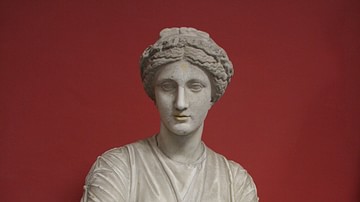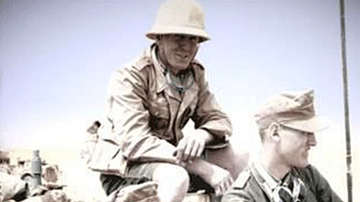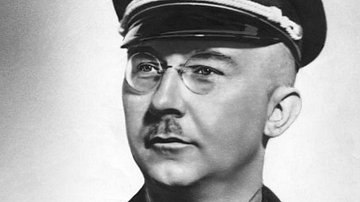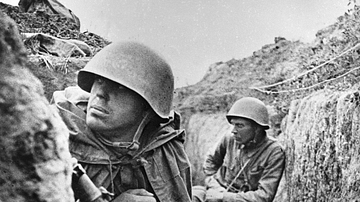Search
Remove Ads
Advertisement
Summary 
Loading AI-generated summary based on World History Encyclopedia articles ...
Search Results

Definition
Mary Prince
Mary Prince (l. c. 1788 to c. 1833) was the first enslaved Black woman to publish an autobiography/slave narrative. Prince was illiterate but dictated her life story to the writer Susanna Strickland (l. 1803-1885), published in 1831 as The...

Definition
Operation Barbarossa - Hitler's Invasion of the USSR
Adolf Hitler (1889-1945), leader of Nazi Germany, attacked the USSR on 22 June 1941 with the largest army ever assembled. The Axis offensive of June-December 1941 was code-named Operation Barbarossa ('Redbeard') after Frederick Barbarossa...

Article
Hesiod on the Birth of the Gods
The Greek poet Hesiod (c. 700 BCE) is most famous for his works Theogony and Works and Days. In this passage from Theogony, Hesiod relates the birth of the gods from cosmic Chaos and follows the lineage through the great Zeus, King of the...

Definition
Adolf Hitler
Adolf Hitler (1889-1945) was the dictator of Nazi Germany from 1933. He gained power by making popular promises like improving Germany's economy and status in Europe, but when he took these policies too far, he was responsible more than anything...

Definition
Afrika Korps
The Deutsches Afrika Korps (DAK) was an elite German armoured unit that fought in North Africa during the Second World War (1939-45). The Korps was initially led by Erwin Rommel (1891-1944) before he was promoted to lead a larger force of...

Definition
Heinrich Himmler
Heinrich Himmler (1900-1945) was the head of the Nazi SS (Schutzstaffel) organisation. One of the most powerful individuals in Nazi Germany, Himmler built up the SS from a small paramilitary unit to a vast organisation, which included armoured...

Article
Why Did Hitler Hate Jewish People?
The leader of Nazi Germany Adolf Hitler (1889-1945) identified Jewish people as enemies of the state, presenting them through relentless propaganda as responsible for Germany's economic and cultural decline. Basing this propaganda on White...

Article
The Red Army in WWII
The Red Army of the USSR began the Second World War (1939-45) with a series of shocking defeats, but from late 1942, it rallied and held on to key cities like the capital Moscow, Leningrad (Saint Petersburg), and Stalingrad (Volgograd). Then...

Article
Siege of Leningrad
The siege of Leningrad (Saint Petersburg) began during Operation Barbarossa, the invasion of the USSR launched by the leader of Nazi Germany, Adolf Hitler (1889-1945), during the Second World War (1939-45). The siege or blockade lasted from...

Definition
German-Soviet War - WWII's Bloodiest Front
The German-Soviet War, known in the USSR and today's Russia as the Great Patriotic War or, in Western Europe, as the Eastern Front of the Second World War (1939-45), began in June 1941 with Operation Barbarossa and ended in Germany's total...